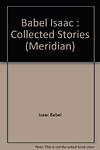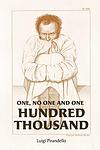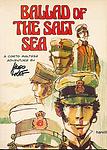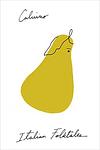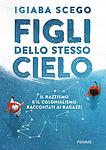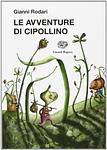The Greatest Italian, Russian "Fiction" Books Since 1900
Click to learn how this list is calculated.
This list represents a comprehensive and trusted collection of the greatest books. Developed through a specialized algorithm, it brings together 300 'best of' book lists to form a definitive guide to the world's most acclaimed books. For those interested in how these books are chosen, additional details can be found on the rankings page.
Genres
Countries
Date Range
Reading Statistics
Click the button below to see how many of these books you've read!
Download
If you're interested in downloading this list as a CSV file for use in a spreadsheet application, you can easily do so by clicking the button below. Please note that to ensure a manageable file size and faster download, the CSV will include details for only the first 500 books.
Download-
26. Petersburg by Andrei Bely
"Petersburg" is a symbolist novel set in the heart of Russia during the 1905 Revolution. It follows the story of a young man who is given the task of assassinating his own father, a high-ranking government official, by a radical political group. The narrative is a complex mix of politics, family drama, and philosophical introspection, all set against the backdrop of a city in turmoil. The novel is renowned for its vivid and poetic descriptions of the city itself, making Petersburg as much a character in the story as the people who inhabit it.
-
27. Red Cavalry by Isaac Babel
The book is a collection of short stories that delve into the experiences of a Jewish political commissar serving with the Cossack regiment in the Soviet Red Army during the Polish-Soviet War of 1919-1921. Through a series of vivid, often brutal vignettes, the narrative explores the harsh realities of war, the cultural tensions between the Jewish intellectual and the Cossack soldiers, and the moral ambiguities faced by individuals caught in the turmoil of conflict. The stories are renowned for their stark, powerful prose and their unflinching examination of the human condition amidst the chaos of war.
-
28. Moscow Petushki by Venedikt Yerofeev
The book is a surreal and satirical narrative that takes the reader on a tragicomic journey aboard a suburban train from Moscow to the small town of Petushki. The protagonist, a disillusioned intellectual and alcoholic, engages in philosophical musings and encounters a variety of eccentric characters, each embodying different aspects of Soviet life. As he delves into ruminations on love, suffering, and the search for meaning amidst the absurdities of existence, the journey becomes a metaphor for the human condition and the societal decay of the USSR, blending dark humor with poignant introspection.
-
29. My Brilliant Friend by Elena Ferrante
This novel tells the story of two friends, Elena and Lila, growing up in a poor neighborhood in Naples, Italy in the 1950s. Their intense, complicated friendship is marked by competition, mutual respect, and deep affection. As they navigate the challenges of adolescence, including family drama, academic struggles, and romantic entanglements, their bond is tested and transformed. The narrative explores themes of female friendship, social class, education, and the struggle for personal autonomy in a patriarchal society.
-
30. The Gift by Vladimir Nabokov
"The Gift" is a novel that tells the story of Fyodor, a Russian émigré living in Berlin, who is struggling to establish himself as a writer. The book explores his life, love, and the process of writing, along with his relationships with his fellow Russian émigrés. The narrative also delves into Fyodor's admiration for his father, a renowned explorer who mysteriously disappeared on an expedition. The novel is a profound examination of the creative process, the expatriate experience, and the power of art.
-
31. The Collected Stories of Isaac Babel by Isaac Babel
This collection of short stories presents a rich tapestry of narratives exploring the harsh realities of war, the complexities of Jewish life in early 20th century Russia, and the human condition. Written by a renowned Russian author, the stories are known for their vivid imagery, poignant themes, and incisive social commentary. The collection includes famous works like "Red Cavalry", a series of stories based on the author's experiences as a journalist during the Russo-Polish War, and "Odessa Stories", which depicts the vibrant yet often brutal life in the city's Jewish ghetto.
-
32. A Ghost at Noon by Alberto Moravia
A Ghost at Noon is a tale of a troubled marriage set against the backdrop of Rome and Capri. The story follows a screenplay writer who is struggling with his failing marriage and the production of his new film. As his wife becomes infatuated with their young guide in Capri, the writer becomes increasingly paranoid and jealous, ultimately leading to the collapse of their relationship. The narrative parallels the story of Homer's Odyssey, which the protagonist is adapting for the screen, adding another layer of complexity to the story.
-
33. Kaputt by Curzio Malaparte
"Kaputt" is a semi-autobiographical novel that portrays the bleak and disturbing experiences of the author during World War II. The narrative is set in Eastern Europe and offers a vivid depiction of the war's atrocities, including the Holocaust, as seen through the eyes of a war correspondent. The book is known for its surreal and grotesque imagery, combined with the author's sharp and cynical observations of the war's impact on humanity.
-
34. First Circle by Aleksandr Solzhenitsyn
"First Circle" is a gripping narrative set in a Soviet Union labor camp during the Stalin era, where the prisoners are intellectuals and scientists. The story revolves around these individuals who, despite their grim circumstances, engage in political and philosophical debates, striving to maintain their dignity and humanity. The novel explores themes of morality, corruption, and the human spirit, providing a vivid and harrowing depiction of life under Stalinist rule.
-
35. The Time of Indifference by Alberto Moravia
This novel explores the dynamics of an upper-middle-class Italian family facing financial ruin. The story focuses on the emotional indifference and moral decay among family members, as they engage in affairs and manipulative behavior to secure their social status. As the family's fortunes dwindle, their lack of empathy and moral integrity becomes increasingly evident, offering a critique of bourgeois values and the corrosive effects of apathy and materialism.
-
36. Mother by Maxim Gorky
This novel centers around a working-class Russian woman who becomes involved in revolutionary activities after witnessing the struggles and injustices faced by her son and his comrades. Despite her initial fear and hesitation, she evolves into a dedicated activist, smuggling illegal literature and participating in strikes. The narrative provides a powerful exploration of the personal and societal transformations brought about by political activism, set against the backdrop of pre-revolutionary Russia.
-
37. To Each His Own by Leonardo Sciascia
"To Each His Own" is a mystery novel that follows a professor in a small Sicilian town who becomes obsessed with solving a double murder after receiving an anonymous letter. As he delves deeper into the investigation, he uncovers a web of corruption and deceit that reaches to the highest levels of power in his town. Despite his best efforts to bring the truth to light, he finds himself in danger as those involved in the murders will stop at nothing to keep their secrets hidden.
-
38. Pnin by Vladimir Nabokov
The novel is about a Russian émigré, Timofey Pnin, who is a professor at an American college. Pnin struggles with the complexities of life, language, and American culture, while dealing with the traumas of his past in Russia. The book is a series of loosely connected episodes, filled with humor, pathos, and Pnin's endearing confusion. His struggles and triumphs in academia and his search for a home and identity form the crux of the story.
-
39. One, No One and One Hundred Thousand by Luigi Pirandello
The book tells the story of a man who has his identity shattered when his wife casually notes that his nose tilts to the right, something he had never noticed before. This seemingly insignificant comment leads him into an obsessive quest to understand how he is perceived by others, and he gradually loses his sense of self as he fragments into a multitude of characters. The protagonist's existential crisis intensifies as he realizes that everyone he meets perceives him differently, leading him to question his own existence and ultimately, his sanity.
-
40. The Artamonov Business by Maxim Gorky
"The Artamonov Business" is a multi-generational saga that follows the rise and fall of a Russian family's business empire from the 1860s up to the Russian Revolution. The narrative explores the dynamics of the Artamonov family, their personal struggles, moral dilemmas, and the impact of their actions on those around them. The story also provides a critical examination of the socio-economic changes in Russia during this period, highlighting the transformation from a feudal society to a more capitalist one and the accompanying moral decay.
-
41. The Real Life of Sebastian Knight by Vladimir Nabokov
"The Real Life of Sebastian Knight" is a novel centered around the protagonist's quest to understand and write a biography about his deceased half-brother, a famous author. However, as he delves deeper into his brother's life, he encounters numerous obstacles and confusions, including misleading information, false leads, and the challenge of distinguishing between the man and his literary persona. Ultimately, the protagonist's journey becomes a profound exploration of identity, truth, and the blurred line between fiction and reality.
-
42. The Life Of Arseniev by Ivan Bunin
"The Life of Arseniev" is a poignant and introspective novel that explores the life of Arseniev, a middle-aged man grappling with the complexities of love, desire, and the passage of time. Set against the backdrop of pre-revolutionary Russia, the story delves into Arseniev's relationships with various women, his struggle to find meaning and fulfillment, and his eventual realization of the fleeting nature of human existence. With lyrical prose and a deep understanding of human emotions, the author captures the essence of a man's inner turmoil and the universal themes of love, loss, and self-discovery.
-
43. A Violent Life by Pier Paolo Pasolini
"A Violent Life" explores the journey of a young man from the slums of Rome who becomes entangled in the world of crime. As he navigates through this violent and chaotic life, he is confronted with the harsh realities of poverty, injustice, and the struggle for survival. The narrative provides a stark and unflinching examination of the underbelly of Italian society, revealing the deep-seated corruption and systemic inequality that pervades it. The protagonist's life is a testament to the destructive cycle of violence and despair that traps the marginalized and underprivileged.
-
44. Summer in Baden-Baden by Leonid Tsypkin
"Summer in Baden-Baden" is a unique blend of fact and fiction that intertwines the author's own travels to Leningrad with a reimagining of Fyodor Dostoevsky's summer in Baden-Baden, Germany. The narrative shifts between the two journeys, exploring themes of obsession, identity, and the power of literature. The author's fascination with Dostoevsky serves as a lens through which he examines his own life and experiences as a Jew in Soviet Russia, while also providing a fresh perspective on the famous Russian author's life and works.
-
45. Silk by Alessandro Baricco
"Silk" is a historical fiction novel that tells the story of a 19th-century French silkworm merchant who travels to Japan for business. During his travels, he becomes enamored with a mysterious woman. His unrequited love for her haunts him for the rest of his life, even as he returns to France and continues his life there. The novel explores themes of love, longing, and the profound impact that brief encounters can have on one's life.
-
46. Ballad of the Salt Sea by Hugo Pratt
This graphic novel follows the adventures of a young sailor who becomes entangled in a dangerous plot involving pirates, kidnappings, and political intrigue in the South Seas. Set in the early 20th century, the story is filled with historical references and exotic locales, providing a rich backdrop for the complex narrative. The sailor's journey is not just physical but also emotional, as he navigates the treacherous waters of personal relationships and moral dilemmas.
-
47. Italian Folktales by Italo Calvino
This book is a comprehensive collection of 200 traditional Italian folktales, meticulously gathered from different regions of Italy. The stories range from humor to horror, from fairy tales to moral lessons, from whimsical to deeply symbolic, showcasing the rich cultural heritage of Italy. These tales, translated and retold, provide a fascinating insight into the folklore, traditions, and beliefs of Italian people.
-
48. Family Sayings by Natalia Ginzburg
"Family Sayings" is a semi-autobiographical novel that explores the author's experiences growing up in a large Jewish-Italian family in the pre and post-World War II era. The narrative is a collection of family anecdotes, sayings, and stories that illustrate the dynamics, relationships, and history of the family. The book also provides a glimpse into the political and social changes in Italy during this period, including the rise of fascism and the impact of the war. The author's poignant and evocative storytelling brings to life a world that is both deeply personal and universally relatable.
-
49. The Ragazzi by Pier Paolo Pasolini
The book is a poignant exploration of post-war Italian youth, delving into the lives of a group of boys from the slums of Rome as they navigate the challenges of poverty, social exclusion, and the struggle to find their identities. Set against the backdrop of a country grappling with the aftermath of fascism and the rise of consumerism, the narrative portrays the harsh realities of street life, where the ragazzi, or boys, engage in petty crime, prostitution, and moments of tenderness, all while dreaming of escape and a better future. The novel is a gritty, raw depiction of the loss of innocence and the corrosive effects of societal neglect on the young generation.
-
50. The Adventures Of Cipollino by Gianni Rodari
"The Adventures of Cipollino" is a delightful children's book filled with whimsical characters and enchanting adventures. Set in a world of fruits and vegetables, the story follows the brave and mischievous Cipollino, a little onion, as he leads a rebellion against the tyrannical Prince Lemon and his oppressive regime. With a blend of humor, fantasy, and social commentary, this captivating tale teaches valuable lessons about justice, friendship, and the power of standing up for what is right.
Reading Statistics
Click the button below to see how many of these books you've read!
Download
If you're interested in downloading this list as a CSV file for use in a spreadsheet application, you can easily do so by clicking the button below. Please note that to ensure a manageable file size and faster download, the CSV will include details for only the first 500 books.
Download




